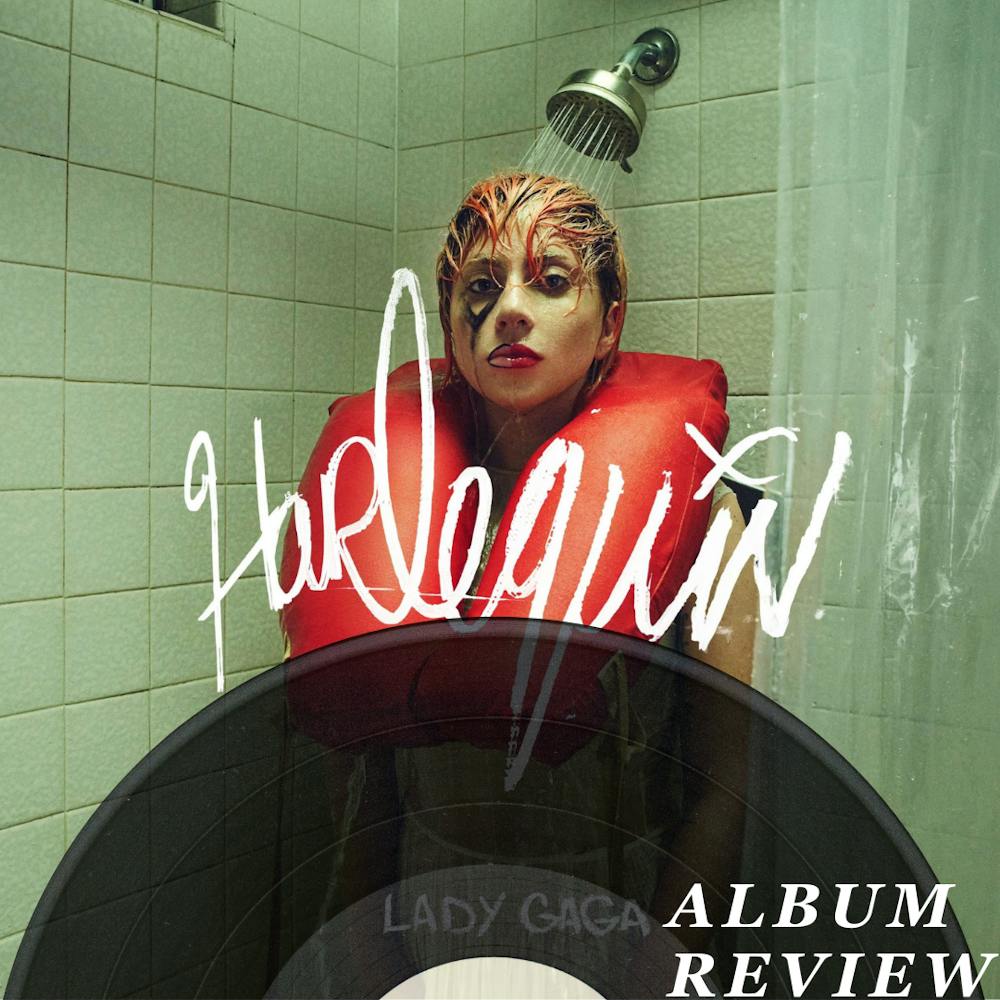Lady Gaga refuses to play it safe. The commercial success of “The Fame” (2008), “The Fame Monster” (2009) and “Born This Way” (2011) cemented her status as a global icon. Critics celebrated and scrutinized her theatricalism and outlandish avant-garde fashion. However, she is an artist first and a brand second, describing her creative process as a “romantic relationship with suffering for [her] art.”
Rather than approaching her future projects with a tried-and-true formula to secure sales, the multi-hyphenate consistently pushes the envelope of her artistry. From the provocative EDM soundscape of “ARTPOP” (2013) and Americana-influenced texture of “Joanne” (2016) to the nuanced performances in “A Star is Born” (2018) and “House of Gucci” (2021), Lady Gaga’s aforementioned works have fluctuated in popularity but fortified her versatility, leaving her well-equipped to play Lee Quinzel in the film “Joker: Folie à Deux” (2024) and release its companion album, “Harlequin” (2024).
The opening track, “Good Morning,” is an enticing appetizer. Lady Gaga’s vocals and the accompanying instrumentation are crunchy, colorful and conducive to foot-tapping your way into the jazz atmosphere that lies ahead. In the second track and cover of “Get Happy (2024),” Lady Gaga completely sheds her pop essence to embody Quinzel, the gospel-jazz dynamo. She is loud, overzealous and out of her mind.
If Joaquin Phoenix’s portrayal of Arthur Fleck for “Joker” (2019) required him to tap into his own madness, “World On A String” captures Lady Gaga’s descent into madness alongside him. Sure enough, she infuses much of “Harlequin” with the pathos of her psychologically unstable Quinzel.
“If My Friends Could See Me Now” — a reimagining of the “Sweet Charity” (1966) classic — exemplifies Lady Gaga’s use of her vocal range to convey ever-increasing instability: She warms up with a whisper before frenetically scat-singing her way to the song’s trombone-blazing conclusion. Although, when “Gonna Build A Mountain” arrives a few tracks later, following a similar crescendo, it feels repetitive.
The disquieting track, “Smile,” interrupts this explosive momentum, offering three-and-a-half minutes of off-kilter coziness and tension. Fortunately, this unnerving sensation disappears into the grunge-laden groove of “The Joker,” where Lady Gaga sings with the chutzpah of a ringmaster commanding her spotlight — “There’s always a joker, that’s the rule / but fate deals the hand that I see.”
“Folie à Deux” is French for “shared madness” — two minds spiraling into chaos as one. The eponymous track is one of only two original songs on “Harlequin,” the other being the BloodPop-produced “Happy Mistake.” Lady Gaga last collaborated with BloodPop on the anthemic ballad “Hold My Hand” (2022) for the film “Top Gun: Maverick” (2022). Their reunion on “Happy Mistake” is a tribute to her diverse musical repertoire and Quinzel’s fractured mind, as she sings “My head is filled with broken mirrors.”
By the penultimate track, it is impossible to discern whether the star is singing from her heart or Quinzel’s, but that ambiguity is what makes the subject matter so compelling.
“That’s Life” — a rollicking cover of the Frank Sinatra hit — wraps up the album, tying the loose ends of this complex, chameleonic life. “I’ve been a puppet, a pauper, a pirate, a poet / A pawn and a queen … But I know one thing / Each time I find myself flat on my face / I pick myself up and get back in the race,” Lady Gaga growls.










